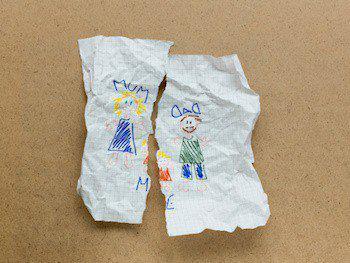Recent Blog Posts
Signs Your Marriage Might Not Last
 While every newlywed couple would like to believe that their marriage will beat the odds and last forever, nearly 50 percent of all married couples end up filing for divorce. After years of studying both successful and failed marriages, the American Psychological Association has identified several factors that may indicate a marriage is more likely to end in divorce.
While every newlywed couple would like to believe that their marriage will beat the odds and last forever, nearly 50 percent of all married couples end up filing for divorce. After years of studying both successful and failed marriages, the American Psychological Association has identified several factors that may indicate a marriage is more likely to end in divorce.
According to the National Center for Health Statistics (NCHS), demographics may play an important role in predicting whether a marriage will last until its 20th wedding anniversary. Statistics show that African-American women have the lowest chance of a lasting marriage, at 37 percent, while Caucasian men and women, as well as African-American men's chances stand at just over 50 percent. Male Hispanic immigrants and Asian women stand the highest chance of achieving a lasting marriage, at 70 percent.
What a Prenuptial Agreement Can and Cannot Do
 Prior to getting married, it is important to discuss things such as potential children, jobs, and where you both will live. One subject that might be harder to talk about is about money. That is especially the case if one spouse comes into the relationship with a better financial position such as higher wages, property or a possible inheritance. That spouse may want to protect their assets in the future by drafting a prenuptial agreement.
Prior to getting married, it is important to discuss things such as potential children, jobs, and where you both will live. One subject that might be harder to talk about is about money. That is especially the case if one spouse comes into the relationship with a better financial position such as higher wages, property or a possible inheritance. That spouse may want to protect their assets in the future by drafting a prenuptial agreement.
There are certain things that a properly written prenup can achieve. It is generally used to specify how assets shall be divided on the chance that the marriage ends in divorce. It can also dictate how certain separate or marital assets can be characterized, managed and controlled. This is essential if either spouse owns a family business or home prior to becoming married. Also if either spouse has a large amount of debt, it can protect the other from being financially responsible. A prenup may also dictate if a spouse is eligible to receive alimony or direct how much support can be awarded.
January is the Start of Divorce Season
The holidays can be stressful for everyone. The season is spent buying expensive presents, travelling in cold weather and spending time with family members. These stresses can further divide married couples who may have relationship problems throughout the whole year. But couples often stick together through the holidays even if their relationship has run its course. That phenomenon has lead attorneys to call January "divorce month".
 Research has also shown that January is the month to consider filing for divorce. An analysis by FindLaw.com has shown that between 2008 and 2011 there was an increase in divorce filings in the month of January. This increase sees an apex in the month of March and then tends back down through the rest of the year until September when it increases again.
Research has also shown that January is the month to consider filing for divorce. An analysis by FindLaw.com has shown that between 2008 and 2011 there was an increase in divorce filings in the month of January. This increase sees an apex in the month of March and then tends back down through the rest of the year until September when it increases again.
The website also looked at search activity for their website and found a similar increase in the month of January. Phrases like "divorce", "family law" and "child custody" increased 50 percent from the month of December to the month of January. This increase peaked in the month of March. If people are not filing for divorce, they are at least considering the possibility.
Psychological Tasks to Keep Your Marriage Healthy
Keeping your marriage healthy in order to avoid filing for divorce may depend on both parties in the couple completing some simple psychological exercises. As we head into the New Year, many couples will be making resolutions to work on themselves and their marriages; keeping these few simple thoughts in mind may help save your marriage.
 According to the American Psychological Association (APA), nearly 50 percent of all marriages end in divorce. Couples who spend some time focusing on the following five psychological tasks set forth by the APA, however, stand a better chance of beating the odds. In order to help make a marriage work, couples should:
According to the American Psychological Association (APA), nearly 50 percent of all marriages end in divorce. Couples who spend some time focusing on the following five psychological tasks set forth by the APA, however, stand a better chance of beating the odds. In order to help make a marriage work, couples should:
- Establish a new identity as a couple that is separate, though not estranged from, the families they grew up in;
- Establish boundaries that protect their individuality while still working on building a sense of intimacy and togetherness;
New Study Links Divorce to Spouse's Alcohol Consumption Habits
A recent study, conducted by the Buffalo Research Institute on Addictions (RIA), has linked the differences in a spouse's alcohol consumption habits to divorce. Kenneth Leonard, Ph.D., RIA director and lead author of the study stated,"Our results indicate that it is the difference between the couple's drinking habits, rather than the drinking itself, that leads to marital dissatisfaction, separation and divorce."
 Researchers followed 634 couples over the first nine years of their marriage and found that close to 50 percent of couples "where only one partner drank more heavily" would end up divorcing, while the divorce rates for other couples was only 30 percent. The study also found that the divorce rate remained the same for couples where both partners consumed large amounts of alcohol, showing that they were just as likely to stay together as couples who were not heavy drinkers or drinkers at all. "This research provides solid evidence to bolster the commonplace notion that heavy drinking by one partner can lead to divorce. Although some people might think that's a likely outcome, there was surprisingly little data to back up that claim until now," stated Leonard.
Researchers followed 634 couples over the first nine years of their marriage and found that close to 50 percent of couples "where only one partner drank more heavily" would end up divorcing, while the divorce rates for other couples was only 30 percent. The study also found that the divorce rate remained the same for couples where both partners consumed large amounts of alcohol, showing that they were just as likely to stay together as couples who were not heavy drinkers or drinkers at all. "This research provides solid evidence to bolster the commonplace notion that heavy drinking by one partner can lead to divorce. Although some people might think that's a likely outcome, there was surprisingly little data to back up that claim until now," stated Leonard.
Who Can Get a Protective Order in Texas?
 Sadly, although the winter season might be associated with New Year joy, for victims of domestic violence, the winter can be the most difficult part of the year. Domestic violence shelters report that they see more clients during the winter.
Sadly, although the winter season might be associated with New Year joy, for victims of domestic violence, the winter can be the most difficult part of the year. Domestic violence shelters report that they see more clients during the winter.
The long winter months, especially when combined with increased financial pressures or the loss of a job, can add extra stress to a situation where domestic violence is already an issue. If you are a victim of domestic violence, you may be able to use a protective order as part of your overall safety plan. To learn more about your options, you should consult with a family law attorney.
You can get a protective order in Texas if you are a victim of family violence, dating violence, stalking, or sexual assault. The applicant for an order has to go to court to demonstrate that family violence has occurred and that more family violence is likely to occur in the future. This can be a scary prospect for a current victim of violence, which is why having a knowledge attorney at your disposal can make the process easier.
The Process of Petitioning for Divorce in Texas
 Deciding to file for divorce can be arduous and stressful. Occasionally that is because the filer is not aware of how the process works. First, when the decision is made to initiate a divorce, there are certain requirements that need to be met. For example, there are residency requirements in Texas. Either spouse must live in the state for at least six months before filing. Also, either spouse must have lived in the county where the suit is filed for the past 90 days.
Deciding to file for divorce can be arduous and stressful. Occasionally that is because the filer is not aware of how the process works. First, when the decision is made to initiate a divorce, there are certain requirements that need to be met. For example, there are residency requirements in Texas. Either spouse must live in the state for at least six months before filing. Also, either spouse must have lived in the county where the suit is filed for the past 90 days.
After meeting with an attorney and discussing the divorce, that attorney will file an Original Petition for Divorce with the District Clerk of your county. The spouse who initiates the divorce proceedings is called the petitioner and the other spouse is called the respondent. The petition will list the grounds for divorce, children from the marriage, any protective orders existing against either spouse as well as a list of separate property not to be considered in the division of marital property.
Learning from Relationship Mistakes of Divorcees
 Throughout life, people make mistakes. Occasionally, these mistakes are small and forgotten as soon as they are committed. Other mistakes have long lasting effects and are difficult to move past. Divorce can occasionally cause regrets but it is important to learn from mistakes and try not to make them again.
Throughout life, people make mistakes. Occasionally, these mistakes are small and forgotten as soon as they are committed. Other mistakes have long lasting effects and are difficult to move past. Divorce can occasionally cause regrets but it is important to learn from mistakes and try not to make them again.
According to data compiled by Dr. Terri Orbuch, most divorced people cite common regrets from their relationships. The longitudinal study followed over 350 couples who were between 25 and 37 years old. Over 25 years, 46 percent of the couples divorced, and of those Orbuch asked them about the errors they made in their relationships. Mistakes that they realized were contributing factors to their divorce. Dr. Orbuch hoped to use her research as a teaching tool to help others in their marriages.
Fifteen percent of the divorcees responded that they should have given their spouses more positive attention. A kiss, a compliment and other kinds of affection can increase a spouse's mood and strengthen a marriage. Not letting your spouse know that you support them emotionally can have far reaching consequences. Once the feeling of love is gone, then the relationship might be next.
Having a Happy Holiday Season after a Divorce
 The first holidays following a divorce can be a very difficult time for everyone. Families are forced to deal with visitation schedules, vacation, gift-giving and other issues that they have never had to deal with before. If this is your first holiday season following a divorce, there are several things you should consider doing to make your holidays flow more smoothly.
The first holidays following a divorce can be a very difficult time for everyone. Families are forced to deal with visitation schedules, vacation, gift-giving and other issues that they have never had to deal with before. If this is your first holiday season following a divorce, there are several things you should consider doing to make your holidays flow more smoothly.
Create a Holiday Schedule
If you did not create a holiday schedule in your divorce settlement or custody agreement, make one ahead of time. Discuss plans with your ex-spouse calmly and reasonably, and be willing to give a bit. Remember, it should be about making your children happy, and try to resolve things as easily as possible.
Unemployment and Divorce
 There are many factors that contribute to divorce, and more and more studies are being released as of late that point to non-traditional reasons for marital dissolution. One such study, as reported by the Huffington Post, examines martial satisfaction and employment status. "The examination found that when men are not employed, it heightens the possibility of either the man or woman leaving the marriage." The study did not report similar findings if it was the wife that was unemployed or laid off instead of the husband. With effects of the Great Recession still rippling through American society, this study would indicate that many marriages have come to an end because of unemployment or job loss.
There are many factors that contribute to divorce, and more and more studies are being released as of late that point to non-traditional reasons for marital dissolution. One such study, as reported by the Huffington Post, examines martial satisfaction and employment status. "The examination found that when men are not employed, it heightens the possibility of either the man or woman leaving the marriage." The study did not report similar findings if it was the wife that was unemployed or laid off instead of the husband. With effects of the Great Recession still rippling through American society, this study would indicate that many marriages have come to an end because of unemployment or job loss.
The unemployment rate, according to data from the Bureau of Labor Statistics, is dramatically higher today than it was a decade ago. In January 2003, for example, the unemployment rate was 5.8, a typical number for months that year. In 2013, on the other hand, the unemployment rate was 7.9. This was down from the height of the Great Recession, when the January 2010 unemployment rate clocked in at 9.8, nearly a ten-year high (the unemployment rate was the highest its been this decade in March and April of 2010, at 9.9 percent). According to the Census Bureau, however, the divorce rate actually declined from 1990 to 2009; from 4.7 per 1,000 people to 3.4. This was the most recent year for which this data was available.




 512-610-6199
512-610-6199
